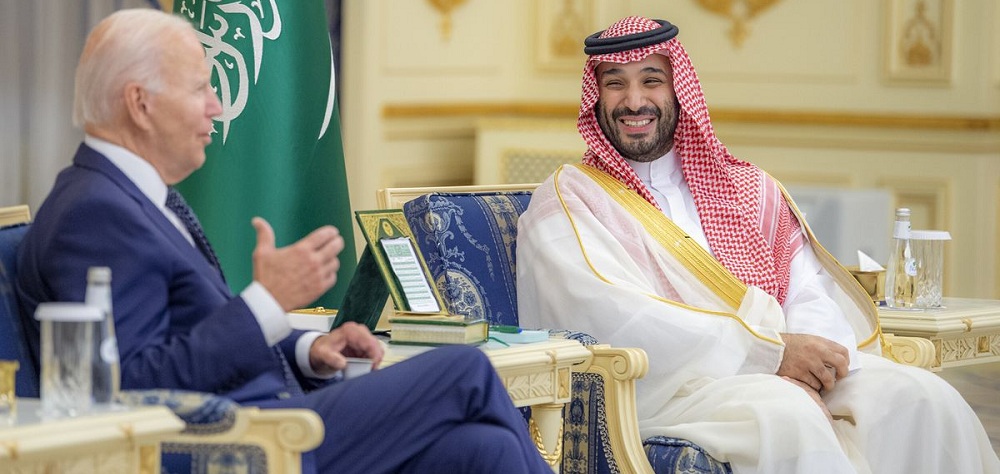While Saudi Arabia and the UAE argued that the deterioration of the economic outlook in the next year and the drop in oil prices in the past few months were the main drivers for the decision, it was interpreted by the White House and Western countries as a step for supporting Russia. From the point of view of Western policy makers, this action of OPEC+ gives Moscow a leg up on the eve of imposing another round of sanctions against Russian oil exports.
Bin Salman turns down Biden
The supply cut date, which starts from early November and just a week
before the Congress mid-term elections, is horrific news for the
Democrats, perhaps showing the Saudi will to deal a blow to Biden by
weakening his position against his rivals.
The White House is worried that with the increase in oil prices on the
eve of the mid-term elections on November 8, the scales will be tipped
in favor of the Republicans and the Democrats will lose the Congress. It
is impossible to ignore the fact that the defeat of the Democrats in
the Congress is a good news for the Saudis. The Democratic-led Congress
has long been critical of Saudi Arabia, and even recently introduced
legislation to withdraw US forces and missile defense systems from Saudi
Arabia and the UAE.
The Saudi and Emirati move ran counter to predictions that followed
Biden’s July visit to Persian Gulf region. Whereas Biden withdrew his
campaign-time stances against Saudi Arabia and exposed himself to
internal and international criticism, Riyadh and Abu Dhabi with their
decision within OPEC+ demonstrated the futility of the American
president's Saudi visit agenda.
It seems that the Saudi are uninterested in broad partnership with Biden
administration and on the other hand do not wish to abandon their
growing cooperation with Russia.
Future of US relations with UAE and Saudi Arabia
As expected, the decision to cut oil output by Saudi Arabia and the
UAE is overshadowing the US relations with them. Following the
announcement by OPEC+, the US Secretary of State Antony Blinken said
that Washington was considering various options in its relations with
Saudi Arabia.
“As for the relationship (with Riyadh) going forward, we're reviewing a
number of response options. We're consulting closely with Congress,"
Blinken said at a news conference in Lima alongside his Peruvian
counterpart.
In initial reactions, the Democrats of the Congress on Thursday demanded reduction of weapons sales to Riyadh.
The growing military and security reliance of the Arab kingdom on the US
in the past decades has always been a tool at the disposal of different
American administrations to force Riyadh comply with their regional
policies.
However, the decline of American global power and hegemony in recent
years has led the Saudis to reduce their reliance on Washington, and
from a strategic point of view, Saudi Arabia's action runs counter to
the American policy that aims at bringing Russia to its knees in
Ukraine.
Having in mind that Russia is a nuclear power and cannot be threatened
with a military response, the West is focusing on economic sanctions and
targeting Russia's oil and gas revenues in its push to foist a defeat
on Moscow. But at the same time, they should deal with the consequences
of cutting energy supplies. Hitting the huge Russian energy revenues is a
riddle that Biden administration is trying to solve by introducing a
‘price cap’ to the Russian oil.
Now that Putin has managed to greatly contain the preliminary impacts of
Western sanctions and save the value of the national currency, rubles,
and hard currency reserves grew to $300 billion, namely to pre-war
levels, the decision by OPEC+ practically serves to neutralize the
proposed price cap for the Russian oil.
/129

